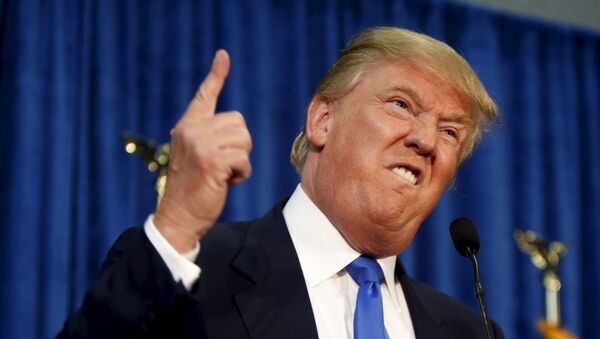Someone in the high-profile position of president of the United States “should not distort the precious history of another country,” said college student Ahn Hong-seok, apparently dropping lessons in diplomacy for Washington’s top dog before even matriculating from university.
No word, action, trip to Florida or golf stroke by a sitting US president is bound to go unnoticed. But the comments touch a special nerve for South Koreans at a time when they could understandably be expected to already on edge over their northern neighbor’s frequent threats and displays of military might. And they’ve got more than North Korea to worry about: tensions between Seoul and Beijing have simmered since a major air-defense system was deployed by the US in South Korea.
Trump’s remark cannot have helped overcome the two nations’ long-standing differences.
“Throughout the thousands of years of relations, Korea has never been a part of China,” South Korean Foreign Ministry spokesman Cho June-hyuck said Thursday. “This is a historical fact,” he underscored, adding, “that is internationally recognized and something no one can deny.”
While wining and dining at his Mar-a-Lago resort in West Palm Beach, Florida, the US president discussed the situation on the Korean Peninsula with China’s president. Trump had been firm in his stated position that China could make all the world’s problems with rogue nuclear state North Korea go away if it so chose. But, “after listening for 10 minutes” to Chinese President Xi Jinping’s side of the story, “I realized it’s not so easy,” he said.
Such reports sting for South Koreans, who worry Xi gave Trump a China-focused view that may limit South Korea’s role in the region. The dismissal of Seoul’s role has even gained a unique name in South Korean media circles: ‘Korean passing.’
— Donald J. Trump (@realDonaldTrump) April 21, 2017
When Trump talks up China’s role in being able to mitigate North Korea’s nuclear development, again tweeting Friday, “while nothing is easy, if they [the Chinese] want to solve the North Korean problem they will,” he dismisses Seoul’s role in finding a solution. What’s more, it is US ally Seoul that would be most likely to suffer massive losses from a North Korean artillery or missile strike.



